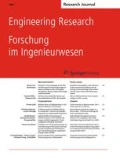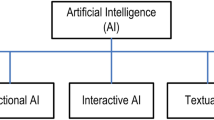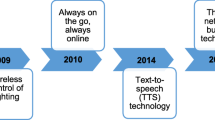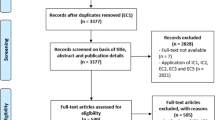Abstract
Operating and maintenance costs, which account for 25% of total costs, are a powerful lever in reducing the electricity generation costs of onshore wind turbines (WT). These costs can be reduced by a condition-orientated maintenance approach. A condition-oriented maintenance strategy optimizes maintenance tasks by executing them with varying levels of detail and focus depending on the system and life cycle phase. OEMs evaluate operating data and structured data from the maintenance history for this purpose, but SMEs lack the capacity for this evaluation. In particular, the unstructured descriptive comments in the maintenance reports generated by service technicians remain unused. In this work, we propose a framework to incorporate this information from the maintenance reports along with the status records from the SCADA system. For this purpose, a mechanism has to be developed to make the contents of the service reports machine-evaluable. The mechanism used in this approach is an ontology, which enables the codification of implicit knowledge such as the experience knowledge of the service technicians. The ontology’s purpose is to link status codes of onshore WT with historical maintenance reports and thereby enabling an automated evaluation. Using an API (application programming interface), the ontology can be integrated into an algorithm to analyse status data and maintenance documents. In this manner, recommendations for actions can be derived and maintenance tasks can be optimized.
Zusammenfassung
Die Betriebs- und Instandhaltungskosten, die 25 % der Gesamtkosten ausmachen, sind ein starker Hebel zur Reduzierung der Stromgestehungskosten von Onshore-Windenergieanlagen (WEA). Diese Kosten können durch einen zustandsorientierten Instandhaltungsansatz reduziert werden. Eine zustandsorientierte Instandhaltungsstrategie optimiert Instandhaltungsaktivitäten, indem diese je nach Anlage und Lebenszyklusphase mit unterschiedlichem Detaillierungsgrad und Fokus ausgeführt werden. OEMs werten dazu Betriebsdaten und strukturierte Daten aus der Instandhaltungshistorie aus, KMUs fehlen jedoch die Kapazitäten für diese Auswertung. Insbesondere die unstrukturierten Kommentare in den von Servicetechnikern erstellten Berichten bleiben ungenutzt. In diesem Artikel stellen wir ein Framework vor, um diese Informationen aus Berichten zusammen mit den Statusaufzeichnungen aus dem SCADA-System nutzbar zu machen. Dazu muss ein Mechanismus entwickelt werden, der die Inhalte der Berichte maschinenverwertbar macht. Der Mechanismus, der in diesem Ansatz verwendet wird, ist eine Ontologie, die die Kodifizierung von implizitem Wissen, wie z. B. dem Erfahrungswissen der Servicetechniker, ermöglicht. Der Zweck der Ontologie ist es, Statuscodes von Onshore-WEA mit historischen Wartungsberichten zu verknüpfen und damit eine automatisierte Auswertung zu ermöglichen. Über eine API (Application Programming Interface) kann die Ontologie in einen Algorithmus zur Analyse von Zustandsdaten und Instandhaltungsdokumenten eingebunden werden. Auf diese Weise können Handlungsempfehlungen abgeleitet und Instandhaltungsaktivitäten optimiert werden.




Similar content being viewed by others
References
Bundesumweltamt (ed) (2019) Erneuerbare Energien in Deutschland: Daten zur Entwicklung im Jahr 2018. https://www.umweltbundesamt.de/sites/default/files/medien/1410/publikationen/uba_hgp_eeinzahlen_2019_bf.pdf. Accessed 27 Nov 2020
Staffell I, Green R (2014) How does wind farm performance decline with age? Renew Energy 66:775–786. https://doi.org/10.1016/j.renene.2013.10.041
Dai J, Yang W, Cao J et al (2018) Ageing assessment of a wind turbine over time by interpreting wind farm SCADA data. Renew Energy 116(B):199–208. https://doi.org/10.1016/j.renene.2017.03.097
Ziegler L, Gonzalez E, Rubert T et al (2018) Lifetime extension of onshore wind turbines: a review covering Germany, Spain, Denmark, and the UK. Renew Sustain Energy Rev 82(Part1):1261–1271. https://doi.org/10.1016/j.rser.2017.09.100
Urbansky F (2018) Die auslaufende EEG-Förderung wirft ihre Schatten voraus. https://www.springerprofessional.de/erneuerbare-energien/erneuerbare-energien-gesetz/die-auslaufende-eeg-foerderung-wirft-ihre-schatten-voraus/16345856. Accessed 27 Nov 2020
Krohn S, Awerbuch S, Morthorst PE (2009) The economics of wind power. European Wind Energy Association, Brüssel
Deutsches Institut für Normung e. V. (ed) (2019) DIN 31051. Grundlagen der Instandhaltung. Fundamentals of maintenance. ICS 01.040.03; 03.080.10. (31051:2019-06)
IZP, IWES, SAG, Erwin Peters GmbH et al (2010) Abschlussbericht: Erhöhung der Verfügbarkeit von Windkraftanlagen. Teilprojekt: Entwicklung von zuverlässigkeitsbezogenen Betriebs- und Instandhaltungsstrategien für Windkraftanlagen unter besonderer Berücksichtigung der Offshore-Bedingungen. https://www.tib.eu/de/suchen/id/TIBKAT:634597957/. Accessed 27 Nov 2020
Studer R, Benjamins VR, Fensel D (1998) Knowledge engineering: principles and methods. Data Knowl Eng 25(1/2):161–197
Gruber TR (1993) A translation approach to portable ontology specifications. Knowl Acquis 5(2):199–220. https://doi.org/10.1006/knac.1993.1008
Staab S (2002) Wissensmanagement mit Ontologien und Metadaten. Informatik-Spektrum 25:194–209. https://doi.org/10.1007/s002870200226
Kuhlen R, Semar W, Strauch D (eds) (2013) Grundlagen der praktischen Information und Dokumentation, 6th edn. Walter de Gruyter, Berlin
Dengel A (2012) Semantische Technologien: Grundlagen – Konzepte – Anwendungen. Spektrum, Heidelberg
Rehäuser J, Krcmar H (1996) Wissensmanagement in Unternehmen. In: Schreyögg G, Conrad P (eds) Wissensmanagement, vol 98. de Gruyter, Berlin, pp 1–40
Senge P (2000) Reflection on “A leader’s new work: building learning organizations”. In: Morey D, Maybury MT, Thuraisingham B (eds) Knowledge management. MIT Press, Cambridge, pp 54–60
Nonaka I, Takeuchi H (1995) The knowledge-creating company: how Japanese companies create the dynamics of innovation. Oxford University Press, Oxford
Musen MA (2015) The Protégé project: a look back and a look forward. AI Matters 1(4):4–12. https://doi.org/10.1145/2757001.2757003
Faulstich S, Hahn B (2019) Erkenntnisse aus digitalisierten Daten von über 3000 Windenergieanlagen im Betrieb. In: VDI Wissensforum (ed) 10. VDI-Fachtagung Schwingungen von Windenergieanlagen 2019 Bremen, 4 June 2019 VDI, Düsseldorf, pp 1–16
Schuh G, Peter T, Gudergan G (2011) Designing cooperation concepts for service concepts. In: Thoben K‑D (ed) 2011 17th International Conference on Concurrent Enterprising Aachen, Germany, 20–22 June 2011 IEEE, Piscataway, pp 1–8
Parbs H (2017) Fragmentierung eines Service Ecosystem: Eine Grounded Theorystudie zur Instandhaltung in der Windenergiebranche. http://nbn-resolving.de/urn:nbn:de:gbv:46-00106483-14. Accessed 27 Nov 2020 (Bremen, University, Dissertation)
Jung H (2014) Erhöhung der Verfügbarkeit von Windkraftanlagen. EVW-Phase II: Praxisimplementierung von zuverlässigkeits- und zustandsorientierten Betriebs- und Instandhaltungsstrategien auf Basis von standardisierten Prozessabläufen. Forschungsvorhaben 0327574D‑H. http://www.wind-evw.de/fileadmin/Dokumente/Abschlussberichte/EVW_II_Abschlussbericht/EVW_Phase_II_Abschlussbericht_ohne_Anlagen.pdf. Accessed 27 Nov 2020 (IZP Dresden mbH, Dresden)
Zhou A, Yu D, Zhang W (2014) A research on intelligent fault diagnosis of wind turbines based on ontology and FMECA. Adv Eng Inform 29(1):115–125. https://doi.org/10.1016/j.aei.2014.10.001
Papadopoulos P, Cipcigan L (2009) Wind turbines’ condition monitoring: an ontology model. In: IEEE (ed) 2009 International Conference on Sustainable Power Generation and Supply SUPERGEN 2009. IEEE, Piscataway, pp 1–4
Ertek G, Chi X, Zhang AN et al (2017) Text mining analysis of wind turbine accidents: an ontology-based framework. In: Staff I (ed) 2017 IEEE International Conference on Big Data (Big Data). IEEE, Piscataway, pp 3233–3241
Stuckenschmidt H (2009) Ontologien: Konzepte, Technologien und Anwendungen. Springer, Berlin
Walford C (2006) Wind turbine reliability: understanding and minimizing wind turbine operation and maintenance costs. https://prod.sandia.gov/techlib-noauth/access-control.cgi/2006/%EE%80%80061100%EE%80%81.pdf. Accessed 2 Nov 2021 (Sandia Report)
Spath D (ed) (2011) Wissensarbeit: Zwischen strengen Prozessen und kreativem Spielraum. Schriftenreihe der Hochschulgruppe für Arbeits- und Betriebsorganisation e. V. (HAB). GITO, Berlin (Tagungsband)
Stevens R, Sattler U (2013) An object lesson in choosing between a class and an object. http://ontogenesis.knowledgeblog.org/1418. Accessed 27 Nov 2020
W3C (ed) (2009) OWL Web Ontology Language Reference. https://www.w3.org/TR/2004/REC-owl-ref-20040210/. Accessed 27 Nov 2020
Horridge M (2011) A practical guide to building OWL ontologies using Protégé 4 and CO-ODE tools. Edition 1.3. http://mowl-power.cs.man.ac.uk/protegeowltutorial/resources/ProtegeOWLTutorialP4_v1_3.pdf. Accessed 27 Nov 2020
Author information
Authors and Affiliations
Corresponding author
Rights and permissions
About this article
Cite this article
Strack, B., Lenart, M., Frank, J. et al. Ontology for maintenance of onshore wind turbines. Forsch Ingenieurwes 85, 265–272 (2021). https://doi.org/10.1007/s10010-021-00466-x
Received:
Revised:
Accepted:
Published:
Issue Date:
DOI: https://doi.org/10.1007/s10010-021-00466-x




